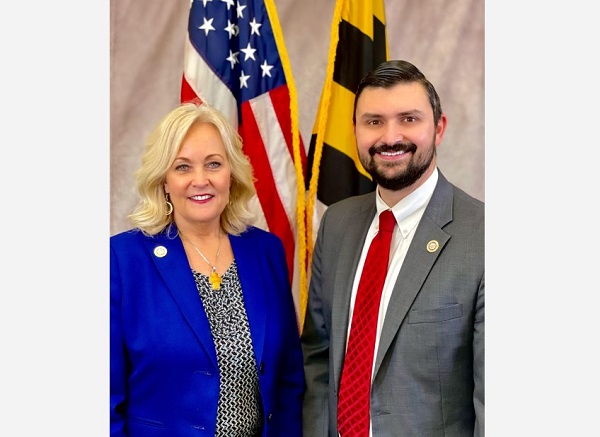The following is an editorial piece from Delegates Kathy Szeliga and Ryan Nawrocki.
Governor Moore testified in favor of his bill, The Housing Expansion and Affordability Act, before the Environment and Transportation Committee in Annapolis last week. During the controversial hearing, the Governor and other proponents of the legislation faced difficult questions and challenges from bipartisan committee members. Delegate Nawrocki asked pertinent questions about removing the guardrails accompanying an Adequate Public Facilities Ordinance to ensure we have the proper amount of schools, roads, and other infrastructure. This is something we are completely opposed to as we have consistently asked the Baltimore County Council to pass an adequate public facilities ordinance. In fact, we penned a letter (PDF) regarding this issue to County Executive Johnny Olszewski in February 2023 and never received a response.
The Governor claims that he wants to create 96,000 low-income housing units. Also, County Executive Olszewski is looking to build 1,000 additional affordable housing units by 2027 due to an agreement with the federal department of housing. Olszewski claims that the county is poised to run out of developable land within 20 years. However, the county is also four years late in passing its 2030 Master Plan, a charter-required process that guides where development should occur every ten years. The process was initially set to occur in 2020, but the county delayed it due to the pandemic.
The Master Plan was finally voted on this week, months after the Council delayed taking action because of concerns about its format and the inclusion of specific areas that would promote mixed-use development. We commend Councilman David Marks, who recommended dozens of amendments to reflect the unique character of our district. For example, the Master Plan includes a new planning effort for White Marsh Town Center and Middle River, blocks funding for the Gunview Road extension which would have sliced through Gunpowder Falls State Park, and prohibits any lane expansion of routes like Chapel Road in Perry Hall and Ebenezer Road in White Marsh. The amendments advocate for preserving green space and the county’s farming areas and redeveloping aging areas such as communities along Belair and Harford Roads. The plan prioritizes the reform of the Adequate Public Facilities Ordinance to address school overcrowding and traffic congestion. It also identifies conservation and compatible development for the former Lafarge Quarry site, as identified through a planning effort or an overlay, requiring a connection be constructed to White Marsh Boulevard, avoiding local routes. Finally, it prioritizes the preservation of the former C.P. Crane plant property as open space and urges that sewer extensions be driven by health concerns—not development such as on Bengies Road.
While we are grateful for these elements of the Master Plan, we remain concerned about the potential legislation from the Governor and County Executive. They had both introduced authoritarian bills that remove the democratic process and cancel the local zoning laws and local representation. These bills would dramatically alter the balance of power, granting the executive branch and unelected bureaucrats unprecedented land use authority at the expense of the most impacted communities. County Executive Olszewski is in favor of the housing bills proposed by the Governor.
Thankfully, due to increased pressure on the County Executive, he announced that he had reached an agreement for the council to introduce legislation in the coming weeks to allow the County Council to have control over mixed-use development in their districts. In exchange, Olszewski said he would withdraw his original bill, which would have allowed mixed-use developments to bypass council approval if they underwent planning and other agency reviews. Council Chairman Izzy Patoka said he would introduce his bill for mixed-use zoning, on March 4. Then, Olszewski will withdraw his bill at the same time after the council voted to extend it.
This still raises a concern because it allows the bill to continue to exist instead of withdrawing it. Council members have told us that the relationship between the council and county administration is strained and that there has not been transparency on how the agreement between Olszewski and Patoka was made. Even the Baltimore Sun reported that county officials refused to help council staff amend the Master Plan, according to emails obtained by the news outlet. We believe that this agenda to radically change Baltimore County would be the first step to further erode local control over local zoning decisions. We consistently work towards conserving green space, preserving the character of our communities, and prioritizing infrastructure and schools before giving a blank check to unplanned development. We will not stay silent on the potential weakening of adequate public facilities standards and the push for high-density development at the expense of established communities.
Do you value local journalism? Support NottinghamMD.com today.

